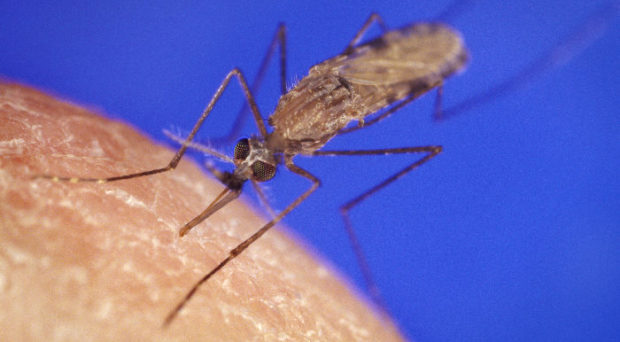
Anopheles gambiae, an efficient vector of malaria in the sub-Saharan Africa. Image by James D. Gathany - The Public Health Image Library , ID#444, Public Domain.
Malaria elimination: a leap forward
A trio of tools have performed the magic trick in defeating malaria, the disease that plagued humanity for centuries, namely; the Noble prize-winning discovery of artemisinin (the wonder drug) for treatment of drug-resistant malaria, the advent of long-lasting insecticidal nets (LLINs) for vector control and rapid diagnostic test (RDT) kits for on-the-spot diagnosis.
Nearly half of the world is certified to be malaria-free. This is attained by having ‘zero indigenous transmission’ for the past three consecutive years and proven abilities to prevent re-establishment of malaria transmission. Many more countries under the E-2020 initiative of WHO (a group of 21 countries that are likely to eliminate malaria by 2020) are fast accelerating towards elimination in the foreseeable future. In 2019, among these, Algeria and Paraguay, have already been certified by WHO as malaria-free countries, while 8 have reported <10 malaria cases in 2018.

Malaria eradication: hope or hype
Given this laudable progress, the authorities are now contemplating malaria eradication, a decision that is bold, but considered to be affordable and attainable by 2050.
The Lancet Commission (launched in October 2017) strongly believes that given the strong commitment, improved tools and increased levels of funding; malaria can be, and should be, eradicated before middle of the 21st century. The task is daunting and fraught with many challenges.
The commission argues that even though a low level of transmission is likely to persist in some equatorial countries of Africa, it would be possible to bend the curve and create a world with no malaria by 2050, based on three pillars: (i) improved management and operations, (ii) making better use of existing technologies, (iii) roll-out of newer technologies and increased funding by $2 billion from existing level of $4 billion.
Malaria eradication: a worthwhile enterprise
Spending on malaria eradication would be a worthwhile investment for a spiraling increase of benefits: (i) the end of the vicious cycle of malarial morbidity and death toll, saving millions of lives, (ii) a major boost to economic prosperity in endemic countries, ensuring return on investment of billions of dollars, (iii) helping meet sustainable developmental goals in promoting equity and reducing poverty. This must be considered judicious for the resources invested.
Challenges ahead
However, without further interventions, the global disappearance of the malarial parasite remains a distant reality. Amidst success stories of ending indigenous malaria transmission, reverses have been observed in some target countries under E-2020 with a substantial increase in cases compared to the preceding year. Imported cases and re-introduction of malaria (cases of the first-generation of local transmission epidemiologically linked to confirmed imported case) have been documented.
A continually evolving parasite, the growing insecticide resistance menace, altered vector behaviour and resultant residual transmission; all are burgeoning issues, which must be confronted with newer intervention tools. Together with enhanced levels of funding aiming for universal coverage, these are all tantamount to biding goodbye to ‘malaria’.
The COVID-19 pandemic may jeopardize the malaria elimination process
A modelling analysis for countries in sub-Saharan Africa (a region that accounts for 90% of reported malaria cases and deaths globally) projected that severe disruptions to insecticide-treated net distribution campaigns and access to antimalarial medicines could lead to substantial increase in cases and a doubling of the number of malaria deaths this year, compared to 2018.
Malaria eradication is necessary
Amidst the COVID-19 pandemic, let the healthcare services not be disrupted and rather aim higher to conquer malaria. To accelerate towards this objective; a programme of ownership for affordable people-centrist healthcare services, strengthening disease surveillance, strong leadership and continued commitment for increased levels of funding, are all essentials at country, regional and global levels to conquer malaria within a generation.
Certainly, while achieving malaria elimination is commendable, malaria eradication would be the greatest human endeavour of mankind in public health.

Comments